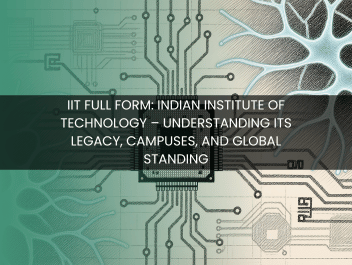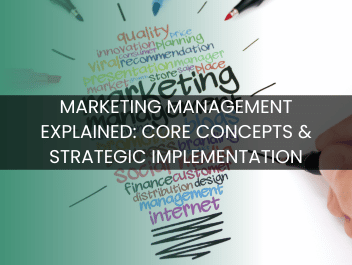
Advancing Your Career: Top Choices After B.Tech in 2025
Graduation day has come and gone, leaving fresh B.Tech graduates with the pivotal question: "after btech what next?" The conclusion of a Bachelor's in Technology is just the beginning of a myriad of pathways—each offering unique prospects and challenges. Understanding "what to do after btech" is crucial as this decision shapes the trajectory of your professional life.
As the engineering landscape evolves, the options available are not just limited to traditional routes but are expanding into more dynamic and innovative fields. From jobs after btech in software development to exploring the role of a data analyst or diving into cybersecurity, the choices after btech are vast. Also, pursuing higher studies such as MSc, MBA, MS, or even cracking competitive exams like UPSC, IES, or entering entrepreneurship are compelling paths to consider.
In this article, we will delve into various career opportunities after btech and what to do after engineering to carve a niche in the ever-competitive job market. Whether it's specializing in MTech for technological prowess or gaining certifications in data science and AI, guiding you through these diverse career options after btech is our goal. Let’s explore the best courses after btech and strategize for comprehensive career growth in 2025.
Table of Content
- 1. Campus Placements: Gateway to Top Companies
- 2. Exploring Roles in Software Development
- 3. Opportunities as a Data Analyst
- 4. The Growing Field of Cybersecurity Analyst
- 5. Pursuing Higher Education: MSc, MBA, and MS
- 6. Specializations in MTech for Technological Fortitude
- 7. Cracking Competitive Exams: UPSC, IES, DRDO, and ISRO
- 8. Entering the Startup Ecosystem: The Path of Entrepreneurship
- 9. Certifications for Skill Enhancement: Data Science, AI, Cybersecurity
- 10. The Influence of B.Tech Specializations on Career Paths
- 11. Careers in Computer Science Engineering (CSE)
- 12. Choosing the Right Path
- 13. Opportunities in Mechanical Engineering
- 14. Prospects in Civil Engineering
- 15. Careers in the IT Sector
- 16. Aligning Passion with Market Demands
- 17. Leveraging Short-term Courses for Skill Growth
Campus Placements: Gateway to Top Companies
Campus placements offer a golden opportunity for students to secure jobs in top companies right from their college premises. For many, this process marks the beginning of a promising career. Here are some key aspects:
- Selection Process: Companies conduct various rounds such as aptitude tests, group discussions, and personal interviews to evaluate candidates. This process ensures that only those who display the necessary technical knowledge and problem-solving skills are selected.
- Career Opportunities: Students have access to diverse roles, from software developer positions in tech industries to mechanical engineer roles in the manufacturing sector. These roles promise job security and a competitive starting salary.
- Advantages: Campus placements save students the hassle of job hunting post-graduation. It's a direct path to employment, offering a smooth transition from academics to professional life.
- Preparation
Tips:
- Develop strong technical expertise.
- Participate in mock interviews.
- Enhance your resume with internships and projects.
Ultimately, campus placements serve as a bridge connecting students to some of the top companies, offering lucrative career options and opportunities right at their doorstep.
Exploring Roles in Software Development
Exploring roles in software development opens an array of exciting opportunities. As a Software Developer, you can work in diverse industries, from finance to entertainment. The tech industry is thriving, and so are the roles within it.
Full-Stack Development is a popular choice, combining front-end and back-end expertise. This role demands strong problem-solving skills and a keen eye for detail. Meanwhile, specializations such as Machine Learning are gaining traction. This field focuses on developing systems that can learn from data, offering fresh challenges and immense growth potential.
Here’s a quick look at some common software development roles:
|
Role |
Description |
|
Front-End Developer |
Works on the user interface and user experience. |
|
Back-End Developer |
Manages database, server, and business logic. |
|
Full-Stack Developer |
Combines front-end and back-end skills. |
|
Machine Learning Engineer |
Develops algorithms for data learning. |
There’s no one-size-fits-all path in this domain. Choose a role aligning with your interests and technical expertise. Whether you lean towards designing engaging UI as a Front-End Developer or creating complex algorithms in Machine Learning, the journey in software development promises a rewarding career prospect.
Opportunities as a Data Analyst
Pursuing a career as a Data Analyst offers numerous opportunities across various industries. Data Analysts are crucial for decision-making processes as they interpret complex datasets to offer actionable insights. Here's a quick overview of what you can expect in this career path:
Career Opportunities
- Industries: Finance, Healthcare, Technology, and
E-commerce frequently hire Data Analysts.
- Roles: Positions include Financial Analyst, Marketing Analyst, and
Business Intelligence Analyst.
Skills Required
- Technical Skills: Proficiency in SQL, Excel, and
data visualization tools like Tableau and Power BI.
- Soft Skills: Strong problem-solving skills and effective communication
are essential.
Job Prospects
- Scope: The demand for Data Analysts is increasing
due to the growing importance of data-driven decisions.
- Growth Potential: Opportunities for advancement into senior roles,
such as Data Scientist or Data Engineer, are abundant.
A Quick Comparison
|
Skillset |
Required Tools |
Potential Roles |
|
Analytical |
SQL, Excel |
Data Analyst |
|
Visualization |
Power BI, Tableau |
Business Analyst |
|
Communication |
Presentation Software |
Financial Analyst |
Exploring opportunities as a Data Analyst can lead to a rewarding career with the potential for growth and development in multiple sectors.
The Growing Field of Cybersecurity Analyst
Cybersecurity analysts are increasingly vital in today’s digital world. Their primary goal is to protect organizations from cyber threats and data breaches. The demand for skilled cybersecurity analysts is rising due to the growing number of cyber attacks on businesses and governments.
Key Responsibilities:
- Monitoring Networks: They keep an eye on network
traffic to detect suspicious activities.
- Vulnerability Assessments: Regularly assessing systems for potential
vulnerabilities.
- Incident Response: Managing and responding to security breaches
swiftly.
Essential Skills:
- Problem-Solving Skills: Critical for identifying
issues and finding effective solutions.
- Technical Expertise: In-depth knowledge of various security
technologies and best practices.
- Attention to Detail: Accuracy is crucial in spotting and mitigating
security threats.
Career Prospects:
Due to the demand, cybersecurity analysts often enjoy job security and attractive salaries. The field offers various career options such as penetration tester, network security engineer, and chief information security officer.
As cyber threats evolve, the role of cybersecurity analysts will continue to grow, making it a promising career path for those interested in technology and security.
Pursuing Higher Education: MSc, MBA, and MS
After completing a BTech, you have several higher study options such as MSc, MBA, and MS. These choices open diverse career opportunities in various sectors.
An MSc (Master of Science) focuses on deepening your technical knowledge. It's ideal for those aiming to specialize in fields like engineering, natural sciences, or tech industry roles such as software engineer or full-stack development.
The MBA (Master of Business Administration) program is perfect for developing management and leadership skills. It suits those aspiring for leadership roles or careers in business, finance, or the private sector.
An MS (Master of Science) is often research-oriented and is pursued by those interested in academics or advancing technical expertise. It offers specialization in niche areas such as Machine Learning or cyber threats.
Comparison Table
|
Course |
Focus |
Ideal For |
|
MSc |
Technical knowledge |
Engineers and scientists |
|
MBA |
Management skills |
Career shift to business, leaders |
|
MS |
Research and academia |
Academics, technical expertise seekers |
Higher studies after engineering, like MSc, MBA, and MS, can significantly enhance career prospects. Make an informed decision based on your career goals.
Specializations in MTech for Technological Fortitude
When pursuing MTech, selecting the right specialization can pave the way for robust career opportunities. Here are some sought-after MTech specializations designed to enhance technological prowess:
- Machine Learning and AI: This specialization focuses on algorithms that improve through experience, vital for the future of tech.
- Cybersecurity: As cyber threats escalate, expertise in this field ensures data protection and safety.
- Robotics Engineering: Merging mechanics, electronics, and computer science, this field is at the forefront of innovation.
- Data Science: Harnessing big data to drive decisions is crucial for modern enterprises.
- VLSI Design: This specialization deals with the fabrication of electronic chips, essential for the hardware sector.
Comparison Table
|
Specialization |
Key Focus |
Career Path |
|
AI and ML |
Algorithms |
Data Scientist, ML Engineer |
|
Cybersecurity |
Protection |
Security Analyst |
|
Robotics |
Automation |
Robotics Engineer |
|
Data Science |
Data Analysis |
Data Analyst, Data Scientist |
|
VLSI Design |
Chip Design |
VLSI Engineer |
These specializations are not only current but also offer promising career prospects and technical expertise, making them valuable choices for MTech aspirants.
Cracking Competitive Exams: UPSC, IES, DRDO, and ISRO
Cracking competitive exams like UPSC, IES, DRDO, and ISRO requires dedication and strategic preparation. These exams open doors to prestigious roles in the government sector, offering job security and career growth.
Key Points for Success:
- Understand the Exam Pattern: Familiarize yourself with the syllabus and structure. Each exam differs in subjects and question patterns.
- Build Strong Fundamentals: For technical exams, strengthen your core knowledge in fields like mechanical, civil, and electrical engineering.
- Practice Regularly: Solve past papers and take mock tests to improve speed and accuracy.
- Time Management: Allocate time wisely during preparation and the actual exam.
- Stay Updated: For exams like UPSC, keep abreast of current affairs and hone problem-solving skills.
Exam Table Overview:
|
Exam |
Focus Area |
Career Opportunities |
|
UPSC |
General Studies, Aptitude |
IAS, IPS |
|
IES |
Engineering Disciplines |
Indian Engineering Services |
|
DRDO |
Technical and R&D fields |
Research and Development Positions |
|
ISRO |
Space and Satellite Technology |
Scientist, Engineer Roles |
Success in these exams can lead to an impactful and rewarding career.
Entering the Startup Ecosystem: The Path of Entrepreneurship
Embarking on the journey of entrepreneurship offers a thrilling pathway into the startup ecosystem. Many graduates wonder, "after btech what next?" For those pondering what to do after BTech, diving into the world of startups can be an enticing option.
Entrepreneurship allows you to carve out unique career opportunities after BTech. This path demands creativity, resilience, and strategic planning but can lead to some of the best jobs after BTech. Building a startup can be a viable choice among the various career options after BTech.
Key benefits of entering the startup world include:
- Innovation and Creativity: As an entrepreneur, you have the freedom to innovate and apply your technical knowledge to solve real-world problems.
- Leadership Skills: Leading a startup develops essential leadership and problem-solving skills.
- Networking: Engage with mentors, investors, and fellow entrepreneurs, expanding your career prospects beyond traditional job opportunities.
For those wondering "after engineering what next," entrepreneurship could be a rewarding path. With the right mindset and determination, the startup ecosystem can be a gateway to significant career growth and achievement.
Certifications for Skill Enhancement: Data Science, AI, Cybersecurity
Certifications are a valuable way to enhance skills in today's competitive job market. If you're considering expanding your expertise, here are some excellent options:
Data Science Certifications:
Pursuing a certification in Data Science can provide a solid understanding of data analysis and statistical methods. Programs like the Certified Data Scientist or the Microsoft Certified: Azure Data Scientist Associate can significantly boost your career prospects, especially in the tech industry.Artificial Intelligence (AI) Certifications:
AI certifications, such as the Google AI or IBM AI Engineering Professional Certificate, prepare you for roles that demand proficiency in Machine Learning and related technologies. They are ideal if you're interested in developing problem-solving skills crucial for transformative tech sectors.Cybersecurity Certifications:
As cyber threats continue to grow, cybersecurity certifications like Certified Ethical Hacker (CEH) or CompTIA Security+ are essential. These programs arm you with the technical knowledge needed to protect valuable data and ensure job security in a rapidly evolving field.Consider these certifications to enhance your technical expertise and maximize your career options. Each path offers unique benefits and can be a stepping stone to a thriving career.
The Influence of B.Tech Specializations on Career Paths
Choosing a B.Tech specialization can significantly impact career trajectories. Each branch, whether Electrical Engineering, Civil Engineering, or Mechanical Engineering, opens distinct career opportunities. For instance, careers in Mechanical Engineering offer roles like Mechanical Engineer or Production Engineer. These fields prioritize technical knowledge and problem-solving skills.
In Civil Engineering, one can become a Civil Engineer, focusing on infrastructure projects. Meanwhile, Electrical Engineering graduates often pursue roles in the tech industry, where expertise in emerging technologies like Machine Learning is valued. Software Engineers, often from Computer Science backgrounds, find opportunities in full-stack development and cyber threat analysis.
Here's a brief table highlighting popular specializations and job prospects:
|
Specialization |
Career Options |
|
Mechanical Engineering |
Mechanical Engineer, Production Engineer |
|
Civil Engineering |
Civil Engineer |
|
Electrical Engineering |
Software Developer, Electrical Engineer |
|
Computer Science |
Software Engineer, Cyber Security Analyst |
Understanding these career prospects can aid in making informed decisions about what to do after engineering. Engaging with career counsellors can further help navigate career options after B.Tech and guide post-graduation after B.Tech plans.
Careers in Computer Science Engineering (CSE)
Careers in Computer Science Engineering (CSE) are thriving in today's tech-driven world. The tech industry offers numerous career options after BTech in CSE. Whether you're pondering what to do after engineering or exploring job opportunities, the scope after BTech in CSE is expansive.
Job Opportunities in CSE
- Software Developer: Design and develop software.
- Data Scientist: Analyze and interpret complex data.
- Full-Stack Developer: Work on both front-end and back-end development.
- Cyber Security Analyst: Protect systems from cyber threats.
- Machine Learning Engineer: Develop algorithms for intelligent systems.
Higher Studies After Engineering
- M.Tech in CSE: For advanced technical knowledge.
- MBA: If you're leaning towards management roles.
- MS in Data Science: Ideal for data enthusiasts.
Choosing the Right Path
The choices after BTech, including pg after BTech, should align with personal interests and career goals. Consulting with a career counsellor can provide insights into the best courses after BTech and guide you through the selection process.
Remember, the options after BTech are vast, offering diverse career opportunities after BTech, from technical rolls to entrepreneurial ventures.
Opportunities in Mechanical Engineering
Mechanical Engineering is a dynamic field offering diverse career opportunities. Whether you're drawn to innovation or traditional roles, there are plentiful paths to explore.
Career Options:
- Mechanical Engineer: Design and analyze components and systems.
- Production Engineer: Streamline manufacturing processes.
- Civil Engineer: Apply mechanical principles to infrastructure projects.
- Software Developer: Combine problem-solving skills with tech solutions.
- Air Force: Use engineering in defense and aerospace sectors.
Higher Studies and Courses:
- Pursue Machine Learning specialization for evolving tech demands.- Achieve expertise through full-stack development programs.
Job Opportunities:
- Government sectors offer job security and benefits.- Private sector provides a competitive edge with dynamic work environments.
Career Prospects:
- The tech industry is booming with roles like Software Engineer.- Become an innovator or consultant with your technical expertise.
Mechanical Engineering is versatile, with pathways in various sectors. Whether you aim for a government job or private sector positions, informed decisions will lead to a fulfilling career.
Roles in Electrical Engineering
Electrical Engineering offers diverse career options suitable for individuals with problem-solving skills and technical expertise. As a Software Engineer, one may design and test software systems. Conversely, a Civil Engineer in the field often deals with electrical layouts for construction. Roles include Production Engineer, focusing on the assembly and maintenance of electrical equipment, and Mechanical Engineer, who works on the integration of mechanical and electrical systems.
Electrical engineers may also specialize in Machine Learning to enhance automation processes or tackle cyber threats to improve system security. Career opportunities in both government sectors and the private sector promise job security and competitive salaries.
Below is a table illustrating some key roles:
|
Role |
Key Focus |
|
Software Engineer |
Designing software systems |
|
Civil Engineer |
Electrical layouts for construction |
|
Production Engineer |
Maintenance of electrical equipment |
|
Mechanical Engineer |
Integration of systems |
These roles highlight the diversity and scope after BTech in Electrical Engineering. For those wondering, "after Btech what next?" pursuing these paths can ensure a promising career.
Prospects in Civil Engineering
Civil engineering offers a vast array of career prospects and job opportunities. It's a field known for its job security and variety of career options after BTech. Many students often wonder, "after BTech what next?" or "what to do after BTech?" For those interested in infrastructure development, civil engineering presents numerous choices after BTech.
Career Options in Civil Engineering
- Government Sectors: Opportunities in departments
such as Public Works, Urban Development, and the Indian Engineering Services.
- Private Sector Roles: Positions in construction companies, real estate
development, and project management.
- Higher Studies: Pursuing a Master's degree or specialized courses like
construction management can elevate your career after engineering.
Prospects in Civil Engineering
|
Prospects |
Description |
|
Government Jobs |
High job security with roles in infrastructure planning and development. |
|
Private Sector Jobs |
Involve working as a civil engineer or project manager with competitive salaries. |
|
Post Graduation after BTech |
Offers avenues into research and academic positions or roles in advanced engineering fields. |
The career options after BTech in civil engineering are diverse, offering you the chance to make an informed decision and carve a successful career path.
Careers in the IT Sector
Careers in the IT sector offer a vast array of opportunities. With the rapidly growing tech industry, a career in IT promises job security and diverse options.
Key IT Roles:
- Software Developer: Create applications and software solutions.
- Systems Analyst: Evaluate and improve technology systems.
- Network Administrator: Maintain and secure networks.
- Cybersecurity Specialist: Protect organizations from cyber threats.
- Data Scientist: Analyze and interpret complex data.
Skills Required:
- Technical Expertise: Strong understanding of
programming and software.
- Problem-Solving Skills: Ability to tackle complex issues.
- Continuous Learning: Staying updated with the latest technologies.
Education and Training:
A degree in computer science, software engineering, or a related field is often required. Certifications, like those in Machine Learning or full-stack development, improve career prospects.
Private vs. Government:
While both sectors offer growth, private sector jobs typically have faster progressions with lucrative salaries. Meanwhile, the government sector provides stability and structured benefits.
Informed decision-making with guidance from a career counsellor can significantly enhance job opportunities in the IT sector.
Aligning Passion with Market Demands
Aligning passion with market demands is essential for a rewarding career. First, identify your interests and talents. Consider what excites you and where you excel. Once identified, match these to industry needs. Analyze job trends to understand market demands, such as the growing fields of Machine Learning, full-stack development, and Software Development.
Consider these steps:
- Research Market Trends: Stay updated on sectors like tech industry, civil engineering, and emerging fields like Cybersecurity. These have high demands for skilled professionals.
- Assess Skills: Evaluate your problem-solving skills and technical knowledge. Skills in Mechanical Engineering, Electrical Engineering, and Chemical Engineering remain relevant and sought after.
- Long-term Growth Potential: Seek careers offering job security and advancement. Government jobs and roles in Indian Engineering Services offer stable career prospects.
- Enhance Your Expertise: Acquire technical expertise through courses or certifications aligning with current market needs. Private sector jobs demand continuous learning.
Here’s a quick comparison:
|
Interest |
Market Demand |
|
Software Engineering |
Software Developer, Cybersecurity |
|
Mechanical Engineering |
Production Engineer, Tech Roles |
|
Civil Engineering |
Infrastructure Projects, Government |
Aligning passion with market demand fosters a fulfilling career with long-term benefits.
Leveraging Short-term Courses for Skill Growth
Leveraging short-term courses for skill growth is a strategic move in today's fast-paced job market. These courses offer focused, quick learning opportunities, enhancing both technical knowledge and problem-solving skills.
Benefits of Short-term Courses:
- Flexibility: They are often available online, making it easier to balance with other commitments.
- Cost-effective: Generally, they are more affordable compared to traditional education.
- Up-to-date Content: Courses often reflect the latest industry trends and technologies, such as Machine Learning and full-stack development.
Popular Short-term Courses:
- Technical Skills: Learning programming languages, software development, or cyber security can open doors to private sector jobs.- Soft Skills: Courses in communication, leadership, and project management are equally valuable in enhancing career prospects.
|
Course Type |
Duration |
Potential Job Opportunities |
|
Programming |
4-12 weeks |
Looking For Job Satisfaction on the long run?
Please feel free to contact our experts
Call to ask any question
+91-9319336222Monday to Saturday
(9:00 AM to 8:00 PM)Resent Blogs
10 Things to Do During an Interview to Impress Your Future Employer
Learn MoreCrafting Your Personal Narrative: A Guide to Writing About Yourself
Learn MoreTop 10 Essential Interview Questions and Expert Answers for 2025
Learn MoreAce Your Next Interview: Essential Questions and Expert Answers for 2025
Learn MoreFirst-Time Manager Interview: Crucial Questions and Strategies for Success
Learn More150 Essential General Knowledge Questions for Interviews in 2025
Learn MoreMaster the Google Interview: Strategies for Success in 2025
Learn MoreHow Can You Describe Yourself Professionally? 5 Key Strategies You Need to Know
Learn MoreMastering the Art of How to Take Interview: Essential Techniques for Success
Learn More25 Essential HR Interview Questions and Answers PDF You Can't Ignore
Learn More7 Tips to Ace Your HR Screening Round and Land Your Dream Job
Learn More10 Essential Tips for Acing Your Interview Exam
Learn More5 Unique Interview Format Examples to Stand Out in Your Next Interview
Learn More5 Powerful Techniques for a Memorable Interview Introduction
Learn MoreMaster Your Next Interview with These Top Interview Preparation Apps
Learn MoreMastering the Art: Top Interview Questions for 12th Class Students
Learn More7 Must-Know Interview Questions for Freshers to Ace Your Job Hunt
Learn MoreMastering Interview Questions for HR Position with Answers: Strategies for Success
Learn More12 Essential Interview Questions for Recruiter Position You Should Prepare For
Learn More10 Must-Know Interview Questions UK Employers Love to Ask
Learn More10 Creative Interview Writing Examples to Spark Your Imagination
Learn More15 Essential Managerial Interview Questions for Freshers to Prepare
Learn More15 Unique Marketing Interview Questions You Haven't Prepared For
Learn More7 Key Strategies for a Successful Mock Interview Session
Learn MoreThe Ultimate Guide to Model Interview Questions: What You Need to Know
Learn More5 My Self Question Exercises to Unlock Your True Potential
Learn More10 Normal Questions That Can Spark Deep Conversations
Learn More15 Essential Personal Interview Questions for Freshers to Ace Your Next Job
Learn More10 Essential Phone Interview Questions You Can’t Afford to Ignore
Learn More15 Essential Sales Interview Questions and Answers for Freshers
Learn More7 Key Situational Interview Questions Every Employer Should Ask
Learn More15 Essential Software Developer HR Interview Questions You Need to Prepare For
Learn MoreMastering the Technical Interview: Essential Questions and Answers
Learn MoreTop Strategies for Responding to Tell Me About Yourself in a Student Interview
Learn MoreTop 10 Interview Questions and Expert Answers
Learn MoreMastering the Art of Interviewing: 50 Tough Questions and Smart Answers
Learn MoreHow to Ace Your Next Mock Interview: Tips and Strategies for Success
Learn MoreYour Ultimate Guide: 60 Insightful Questions to Ask Interviewers
Learn MoreCrafting the Perfect Response to Why Do You Want This Job?
Learn MoreUnique Ways to Tackle the Question Why Should We Hire You?
Learn MoreWhy Should We Hire You? - Top 10 Answers for Customer Service Roles
Learn MoreMastering the Art of Discussing Work Experience in Interviews
Learn MoreMastering Your Sales Interview: 50 Essential Questions and Answers
Learn MoreCareer Paths After 12th Commerce: Your Future Starts Here
Learn MoreExplore One-Year Courses After 12th for Non-Medical Students
Learn MoreQuick Career Paths: 2-Year Degree Courses After 12th for Fast-Track Success
Learn MoreComprehensive Guide: Courses After 12th Commerce
Learn MoreTop 10 Lucrative Courses to Consider After Completing Engineering
Learn MoreAdvancing Your Career: Top Choices After B.Tech in 2025
Learn MoreExplore Your Future: After CET Exam Which Course is Best for Aspiring Professionals?
Learn More5 Reasons Why After Inter CEC, Choosing the Right Course is Crucial
Learn MoreAfter PUC Which Course is Best for Aspiring Engineers? Explore Your Options!
Learn MoreUnlocking Your Future: Best Arts and Science Courses After 12th for 2025
Learn MoreWhy a Bachelor Degree in Commerce is Your Pathway to Success
Learn More15 Best Career Courses to Boost Your Earning Potential in 2025
Learn MoreEmerging Career Fields for 2025: What You Need to Know
Learn MoreExploring In-Demand Career Paths After 12th: Science, Arts, Commerce
Learn More15 Lucrative Science Careers You Should Consider
Learn MoreHigh-Paying Career Paths for Girls After 12th Commerce
Learn MoreTop 10 High Salary Career Courses After 12th Biology
Learn MoreTop 10 High-Paying BSc Specializations for 2025
Learn MoreExploring the Future: Innovative Career Paths for B.Tech Graduates in 2025
Learn MoreComprehensive Guide to B.Tech Specializations for MPC Graduates
Learn MoreUnlocking Your Potential: The Ultimate B Tech Job List for 2025
Learn MoreB.Tech Salary Insights: How Much Can You Earn Per Month?
Learn MoreEssential Business Courses After 12th: Your Guide to a Successful Career
Learn MoreHow Commerce Students Can Transition to BSc IT
Learn MoreExploring Career Paths After 12th: Your Guide to Success in 2025
Learn MoreCertainly! Here are 10 additional title ideas inspired by the list you provided
Learn MoreExploring Career Paths After Engineering: Your Guide to the Future
Learn MoreThe Ultimate Guide to Career Options Post-High School Graduation
Learn MoreDiscover the Top 10 Chemistry Courses After 12th That Lead to High-Paying Jobs
Learn MoreExplore the Best Diploma and Certificate Programs After 12th Commerce
Learn MoreCareer Paths for Computer Science Graduates: Top Opportunities to Explore
Learn MoreExplore Top Courses After 12th: Your Path in Science, Arts, or Commerce
Learn MoreTop 10 Courses After 12th Commerce for a Successful Career
Learn MoreTop Paying Professional Courses After 12th for Commerce Students
Learn MoreEmerging Career Paths After 12th Commerce Without Maths
Learn MoreExploring Career Paths After 12th Science: A Complete Guide
Learn MoreComprehensive Guide to Courses and Career Paths after 12th Grade
Learn MoreEmerging Career Paths in India: What to Expect in 2025
Learn MoreTop Diploma Paths for Students After Completing 12th Science
Learn MoreTop 15 Easiest High-Paying Jobs to Pursue in India by 2025
Learn MoreNavigating Your Future: Easy Degree Options After 12th
Learn MoreExploring Top Engineering Branches After 12th: A Comprehensive Guide
Learn MoreExploring Advanced Studies: Top Entrance Exams for Engineering Graduates
Learn MoreMBA Salary Insights: Top Packages and Compensation Trends in India
Learn MoreTop 15 Lucrative Careers in India for 2025
Learn MoreTop 10 High-Paying Jobs for Commerce Graduates Without Maths
Learn MoreTop 10 High Salary Courses After 12th PCB for Future Success
Learn MoreHigh-Earning Courses to Pursue After 12th Science in 2025
Learn MoreHigh Paying Career Paths for BiPC Students: Top 10 Courses to Consider
Learn MoreExploring High-Paying Engineering Degrees for the Future
Learn MoreExploring Integrated Courses After 12th: A Comprehensive Guide for Students
Learn MoreExploring Career Prospects: What Can You Do with a BBA Degree?
Learn MoreTop 15 In-Demand Professional Courses for Commerce Graduates in 2025
Learn MoreExploring Lucrative Job Paths for BBA Graduates in 2025
Learn MoreMBA Full Form Explained: Master of Business Administration & Its Strategic Career Value
Learn MoreBBA Full Form: The Definitive Guide to BBA Degrees, Admissions, & Career Paths
Learn MoreBCA Full Form Explained: Your Complete Guide to the Degree, Admission & Career Scope
Learn MoreIAS Full Form: Indian Administrative Service Explained & Its Pivotal Role
Learn MoreMBBS Full Form: Unraveling the Meaning Behind a Doctors Qualification
Learn MoreUPSC Full Form: Union Public Service Commission and Its Vital Role
Learn MoreBSc Full Form: Bachelor of Science & What It Means for Your Future
Learn MoreITI Full Form: What Exactly is Industrial Training Institute?
Learn MoreLLB Full Form: Your Ultimate Guide to Bachelor of Laws, Eligibility & Career Scope
Learn MoreIs There a True Computer Full Form? Unpacking the Popular Acronym
Learn MoreB.Tech Full Form Unpacked: Meaning, Scope, and Why It Matters for Your Career
Learn MoreIIT Full Form: Unveiling the Indian Institute of Technology and Its Legacy
Learn MoreMCA Full Form Revealed: Master of Computer Applications & Its Significance
Learn MoreIIT Full Form: Indian Institute of Technology – Understanding Its Legacy, Campuses, and Global Standing
Learn MoreYour Complete Guide to Becoming a Veterinarian: Education, Specialties & Career Paths
Learn MoreBSc Degree: Your Complete Guide to Courses, Careers, and Future Prospects
Learn MoreB.Com Full Form Unveiled: What Bachelor of Commerce Truly Means
Learn MoreBAMS Full Form: Bachelor of Ayurvedic Medicine and Surgery — Unpacking Its Meaning & Career Scope
Learn MoreWhat is a Polytechnic? Your Complete Guide to Courses, Admissions & Career Paths
Learn MoreSSC GD Constable Exam News 2025-26: Latest Updates on Vacancies, Dates & Application
Learn MoreHow to Choose the Best Veterinarian for Your Pet: A Comprehensive Guide
Learn MoreAir Hostess 2026: Your Complete Roadmap to Landing the Dream Job
Learn MoreUnlocking Your Future: The Ultimate BSc Degree Guide (Courses, Careers & Admissions)
Learn MoreCMA Full Form: Certified Management Accountant (Global Standard Explained)
Learn MoreNACH Full Form Explained: What It Is & Why It Matters in Banking
Learn MoreThe Modern Anthropologist: Understanding Their Role, Impact, and Diverse Specializations
Learn MoreBBA: Your Ultimate Guide to Course Details, Admission, Fees, and Future Career Prospects
Learn MoreBDS Full Form Unpacked: Your Essential Guide to Dentistry Courses, Admissions & Career Scope
Learn MoreBHMS Full Form Revealed: Your Complete Guide to Bachelor of Homeopathic Medicine & Surgery
Learn MoreB.Tech Admissions 2026: Your Complete Guide to Courses & Eligibility
Learn MoreCFA Full Form: Understanding the Chartered Financial Analyst Designation
Learn MoreMerchant Navy Salary in India: Unveiling Pay Scales by Rank & Experience
Learn MoreTS EAMCET 2026: Official Notification, Exam Dates & Application Guide
Learn MoreVITEEE 2026: Full Guide to Application, Dates, Syllabus & Preparation
Learn MoreBMS Full Form: Unveiling Bachelor of Management Studies & What it Entails
Learn MoreB.Sc. Computer Science: Your Complete Guide to Courses, Careers & Eligibility
Learn MoreComputer Science Explained: From Basics to Advanced Concepts
Learn MoreWorlds Most Difficult Exams: A Definitive Ranking for 2025
Learn MoreUnion Public Service Commission (UPSC): All You Need to Know
Learn MoreBE Full Form Explained: What Bachelor of Engineering Means & Your Career Path
Learn MoreDMIT Full Form Revealed: Unpacking the Dermatoglyphic Multiple Intelligence Test
Learn MoreIndias Most Difficult Exams: The Ultimate Ranking for 2025
Learn MoreCLAT Full Form: Unveiling the Common Law Admission Test + Key Details
Learn MoreHighest Paying Jobs in India: Unveiling the Top 25 Roles & Their Lucrative Salaries
Learn MoreMA Full Form: Unpacking the Master of Arts Degree & What It Entails
Learn MoreMarketing Management Explained: Core Concepts & Strategic Implementation
Learn MoreBCA Course Subjects: A Comprehensive Guide to Your IT Degree Curriculum
Learn MoreCAT Exam Date 2026: When to Apply & Exam Schedule Revealed
Learn MoreCDS Full Form: Unveiling Combined Defence Services & Your Path to Commission
Learn MoreLab Technician Career Path: Duties, Skills, and Salary Guide
Learn MoreYour Complete Guide to Becoming a Successful Software Developer
Learn MoreAir Hostess Course Guide: Everything You Need to Know for Your Aviation Career
Learn MoreIntroduction: Navigating Your Path to Medical Excellence in India
Learn MoreTop Commerce Courses After 12th: Unlock Lucrative Career Paths
Learn MoreTop Industrial Training Institutes: Your Guide to Skilled Trades
Learn MoreUnderstanding Psychometric Tests: Your Definitive Guide & Free Examples
Learn MoreWhat Does a Surgeon Do? A Comprehensive Guide to the Profession
Learn MoreUG Explained: Your Ultimate Guide to Undergraduate Degrees & Admissions
Learn More10th Pass Govt Jobs 2026: Your Complete Guide to Apply & Secure Your Career
Learn MoreATMA: Your Complete Guide to the Management Admissions Test
Learn MoreBHMS Course Guide: Eligibility, Syllabus, Career Prospects & Top Colleges
Learn MoreUnlock Your Future: The Definitive Guide to Career Counselling
Learn MoreWhat Does a Clinical Psychologist Do? Your Comprehensive Guide
Learn MoreM.Tech Full Form: Master of Technology Explained (Meaning, Scope & Benefits)
Learn MoreRadiology Courses Explained: From Certificates to Masters Degrees
Learn MoreBSc Courses Explained: Full Guide to Specializations, Admissions & Career Paths
Learn MoreBSc Nursing Course: Admission Guide, Eligibility, Syllabus & Career Paths
Learn MoreBA LLB Full Form Explained: Unpacking Bachelor of Arts & Bachelor of Laws
Learn MoreTop BBA Colleges in India: Unveiling the Elite Institutions for Your Management Degree
Learn MoreUPSC CDS Exam Date 2026: Complete Schedule & Notification Details
Learn MoreTop Career-Focused Courses After 12th Grade: Unlock Your Future
Learn MoreExplore the World of Humanities Subjects: A Comprehensive Guide
Learn MoreIPU CET 2026: Complete Guide to Applications, Syllabus & Cutoffs
Learn MoreISI Full Form: Unveiling the Meaning & Importance of the Indian Standards Institute
Learn MoreJEE Advanced 2026 Exam Date: When Will the Exam Be Held?
Learn MoreJEE Main 2026 Result Date: When to Expect Session 1 & 2 Results
Learn MoreMCA Course Guide: Everything You Need to Know About Eligibility, Fees, and Admissions
Learn MoreMultimedia Explained: Your Complete Guide to Definition, Examples, and Impact
Learn MoreThe Ultimate Paramedical Courses List: Find Your Perfect Career Path
Learn MorePharm.D. Program: Your Complete Guide to Curriculum, Admissions & Outcomes
Learn MoreThe Ultimate Guide to Top IIT Colleges in India: Ranking, Admissions, and Courses
Learn MoreATC Full Form: Unpacking Air Traffic Control, Anatomy & More
Learn MoreB.Ed. Course Duration in India: Everything Aspiring Teachers Need to Know
Learn MoreB.Sc Psychology Degree: Your Guide to Admissions, Curriculum & Career Paths
Learn MoreB.Tech Computer Science: Your Complete Guide to Admission, Syllabus & Career Prospects
Learn MoreBDS Course Duration: How Long is Bachelor of Dental Surgery?
Learn MoreBFA Full Form Explained: What is a Bachelor of Fine Arts & Why it Matters
Learn MoreConnet Us
Unlock Your Dream Career Potential - Get Expert Advice From Our Counselling Experts























































































































_Thumbnail_.png )
_Thumbnail_.png )














_All_You_Need_to_Know_Thumbnail_.png )
























_Thumbnail_.png )























